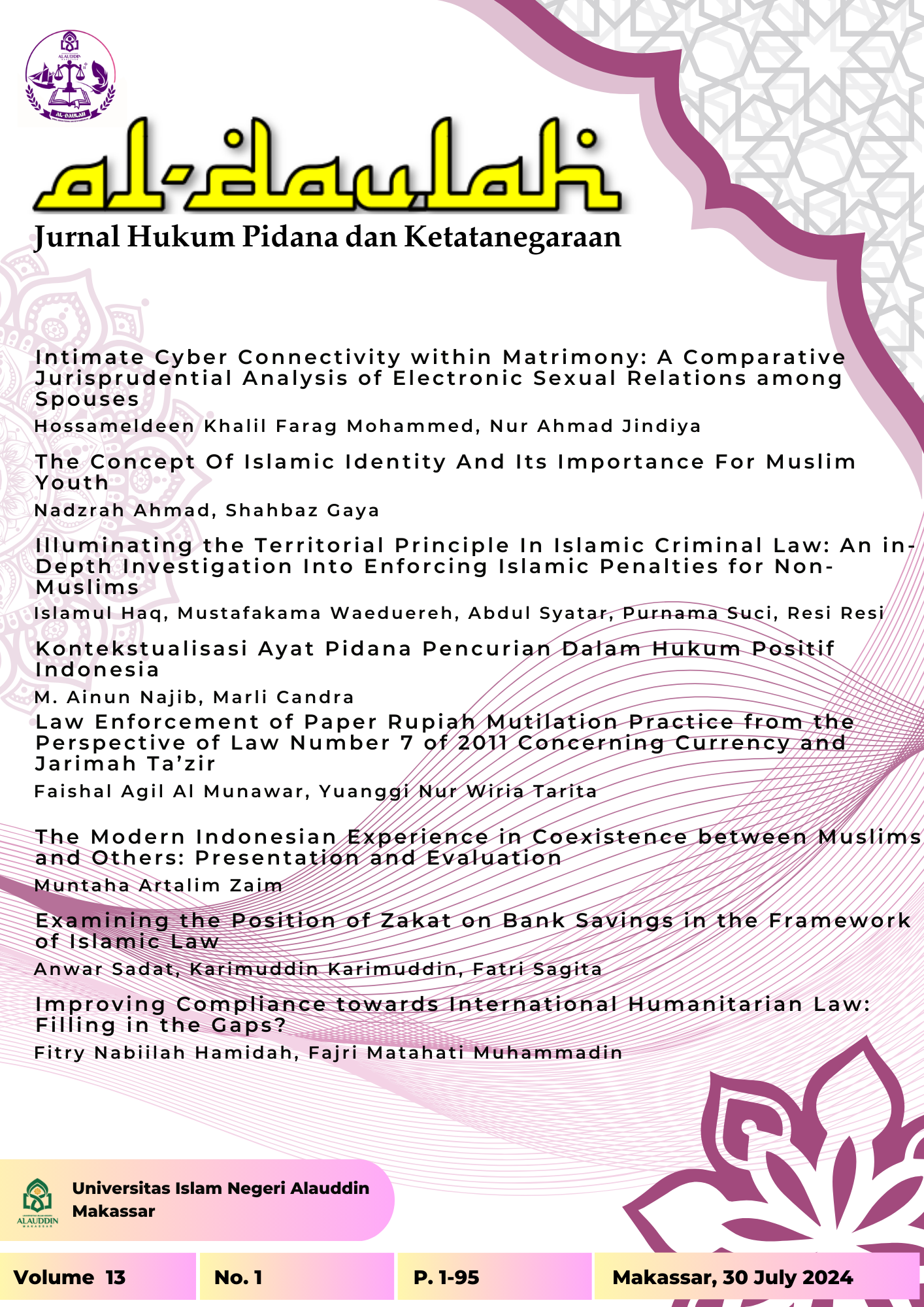POSSIBILITY OF CONDUCTING IJMA'I CONSENSUS IN MODERN TIMES
Abstract
Classical Muslim jurists unanimously had provided rulings for many pre-modern religious and mundane issues of Muslims in the past. However, many other classical issues have not been soved this way. Rather, different opinions of different schools of law regarding them have been continuing until today. On the other hand, different type of new human problems and issues have been emerging everyday from the onset of modern time. Since Islam is considered to be a complete and continuing code of life, it should be able to provide solutions and rulings for these new issues. Likewise, in order to maintain harmony and unity of the society, there should be some continuous ways to reduce differences among Muslim jurists. Among others, ijma'ic consensus is deemed to be a source of law and way to remove such disagreements and to deduct new rulings for the issues mentioned above. The purpose of this paper is to investigate whether ijma'i consensus is possible to be conducted at present, in order to reach this objective, the researcher would critically discuss the arguments of both opponents and supporters of this possibility using classical and modern sources. This paper would be divided into five sections: definition of ijma', arguments of the opponents of conducting ijma' at present, arguments of the supporters of this idea, critical analysis of the arguments of both groups and preferring one opinion over the other, suggestions for how to conduct an ijma 'i consensus and implement its ruling at present.
References
AbuZahrah, Muhammad. 1997. Usul al-Fiqh. Cairo: Dar al-Fikr al-'Arabi.
Badran, Badran Abu al-'Aynayn. No date. Tarikh al-Fiqh al-lslami wa Nazariyyat al-Milkiyyah wa al-'Uqud. Beirut: Dar al-Nahdah al-'Arabiyyah.
—¬¬---—.1965. Usul al-Fiqh. Al-lskandariyyah: Daral-Ma'arif.
AI-Birri, Zakariyya. 1977. Usul al-Fiqh al-lslami. Cairo: Dar al-Nahdah al-'Arabiyyah.
AI-Ghazali, Abu Hamid Muhammad. N.d. AI-Mustasfa fi 'llm al-Usul. N.p: Dar al-Kutub al-'llmiyyah.
Ibn al-'Arabi, al-Qadi Abu Bakr. 1999. AI-Mahsul li-ibn al-'Arabi. Jordan: Dar al-Yabariq.
Ibn Hazm, Abu Muhammad "Ali. 1933. AI-Muhalla. Vol. 1. Beirut: Dar al-Afaq al-Jadidah.
Salqini, Ibrahim Muhammad. 1996. AI-Muyassar fi Usul al-Fiqh al-lslami. Beirut: Dar al-Fikr al-Mu'asir.
Sano, Koutoub Mostapha. 2000. "Fi Mustalah al-ljma' al-Usuli: Ishkaliyyat al-Mafhum bayna al-Mithaliyyah wa al-Waqi'iyyah" in Islamiyyat at-Ma'rifah. Issue 21.
Shalabi, Muhammad Mustafa. 1986. Usul al-Fiqh al-lslami. Vol. 1. Beirut: Dar al-Nahdah al-'Arabiyyah.
Al-Shanqiti, Muhammad al-Amin bin al-Mukhtar. N.d. Mudhakkrat Usul al-Fiqh. Beirut: Dar al-Qalam.
Zaydan, 'Abd al-Karim. 1993. Al-Wajiz fi Usul al-Fiqh. Cairo: Dar al-Tawzi' wa al-Nashr al-lslamiyyah.
Al-Zuhayli, Wahbah. 1996. Usul al-Fiqh al-lslami. Beirut: Dar al-Fikral-Mu'asir. Al-Zulami, Mustafa Ibrahim. 1999. Usul al-Fiqh al-lslami fi Nasijihi al^Jadid. Vol. 1 & 2. Ed. 6. Kurdistan:Matba'at Ufsit ha Walir.
Ajijola, A. D. 1989. Introduction to Islamic Law. Ed.1. New Delhi: International Islamic Publishers.
Coulson, N. J. 1994. A History of Islamic Law. Edinburgh: University Press.
Doi, 'Abdur Rahman I. 1984. Shari'ah: The Islamic Law. London: Ta Ha Publishers.
Hasan, Ahmad. 1988. The Early Dev. of Islamic Jurisprudence. Islamabad: Islamic Research Institute.
_____. 1991. The Doctrine of Ijma' in Islam. Ed. 1. Islamabad: Islamic Research Institute.
Islahi, Amin Ahsan. 1993. Juristic Differences and How to Resolve Them in an Islamic State. Ed. 1. New Delhi: International Islamic Publishers.
Kamali, Mohammad Hashim. 2000. Principles of Islamic Jurisprudence. KL: llmiah Publishers.
Muslehuddin, Muhammad. 1994. Philosophy of Islamic Law and the Orientalists. Lahore: Islamic Pub.
Najmee, Syed Abul Hassan. 1989. Islamic Legal Theory and the Orientalists. Ed. 1. Lahore: Institute of Islamic Culture.
Nyazee, Imran Ahsan. 2000. Islamic Jurisprudence. Islamabad: International Inst. of Islamic Thought.
Rahim, Abdur. 1994. The Principles of Islamic Jurisprudence According to the Hanafi, Maliki, Shafi'i and Hanbali Schools. Ed. 2, New Delhi: Kitab Bhavan.
The authors of a work hold the copyright and grant the Al-Daulah: Jurnal Hukum Pidana dan Ketatanegaraan the right of first publication. The work is also licensed under the Creative Commons Attribution License (CC BY 4.0), which enables others to share the work while acknowledging the authorship and initial publication in the journal. The authors can make separate contractual agreements for the non-exclusive distribution of the published version of the work, such as by posting it to an institutional repository or editing it for a book, with an acknowledgment of its initial publication in this journal. Authors are allowed and encouraged to post their work online, such as in institutional repositories or on their website, before and during the submission process. This can lead to productive exchanges and greater citation of the published work.


